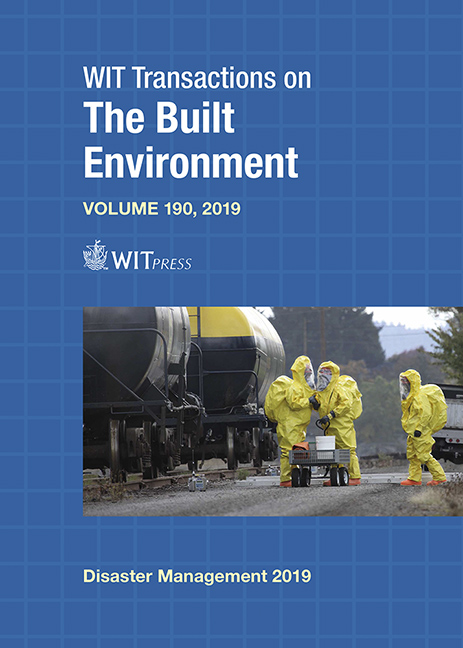DIRTY THE WATERS: MOTHERS’ EXPERIENCE OF A CHEMICAL DISASTER IN WEST VIRGINIA, USA
Price
Free (open access)
Transaction
Volume
190
Pages
12
Page Range
79 - 90
Published
2019
Size
218 kb
Paper DOI
10.2495/DMAN190071
Copyright
WIT Press
Author(s)
EMILY E. PARSONS, EMILY DIAMOND
Abstract
The World Health Organization estimates that 12.6 million deaths a year are attributable to unhealthy environments, while modern industry uses more than 100,000 different chemicals in their operations, most of them understudied. On 9 January 2014, a major chemical spill in Chemical Valley, West Virginia, polluted the water of 300,000 residents across nine counties of this Appalachian region of the United States. At the time of the disaster, and even now, there is very limited knowledge about the chemical in terms of health effects. Approximately 10,000 gallons of 4-Methylcyclohexanemethanol (MCHM), which is used in coal processing, began leaking from a 48,000-gallon tanker in the early morning hours. Residents were not notified of a “Do not use” order until later that evening, after which people had no potable water, and no water for sanitation. This study explores, through structured interviews, the experience of mothers, some pregnant, some with ill children, others with multiple children, in their attempts to manage during the crisis. The study focuses on their levels of trust in systems that many felt failed them throughout the course of the disaster. Communication (official and non-official), the accessibility of clean water, community resilience and coping, caring for their children, immediate and long-term health risks, and the psychological and economic impacts of this disaster will be discussed. This study focused on 35 mothers. It’s the first study to explore this particular demographics’ experience and their continued adjustment in the following years. The structured interview used for this project holds promise for better understanding the experience of mothers in other chemical disasters, in which parents confront limited information, the need to make difficult choices, limited resources, and the lasting echoes of those decisions. It’s hoped that it can be used in other contexts to deepen our understanding of disaster management.
Keywords
chemical spill, toxic environments, 4-Methylcyclohexanemthanol, Chemical Valley, West Virginia water crisis, Elk River, MCHM, polyglycol ethers, water contamination, freedom industry, epigenetic effects, family environmental health




